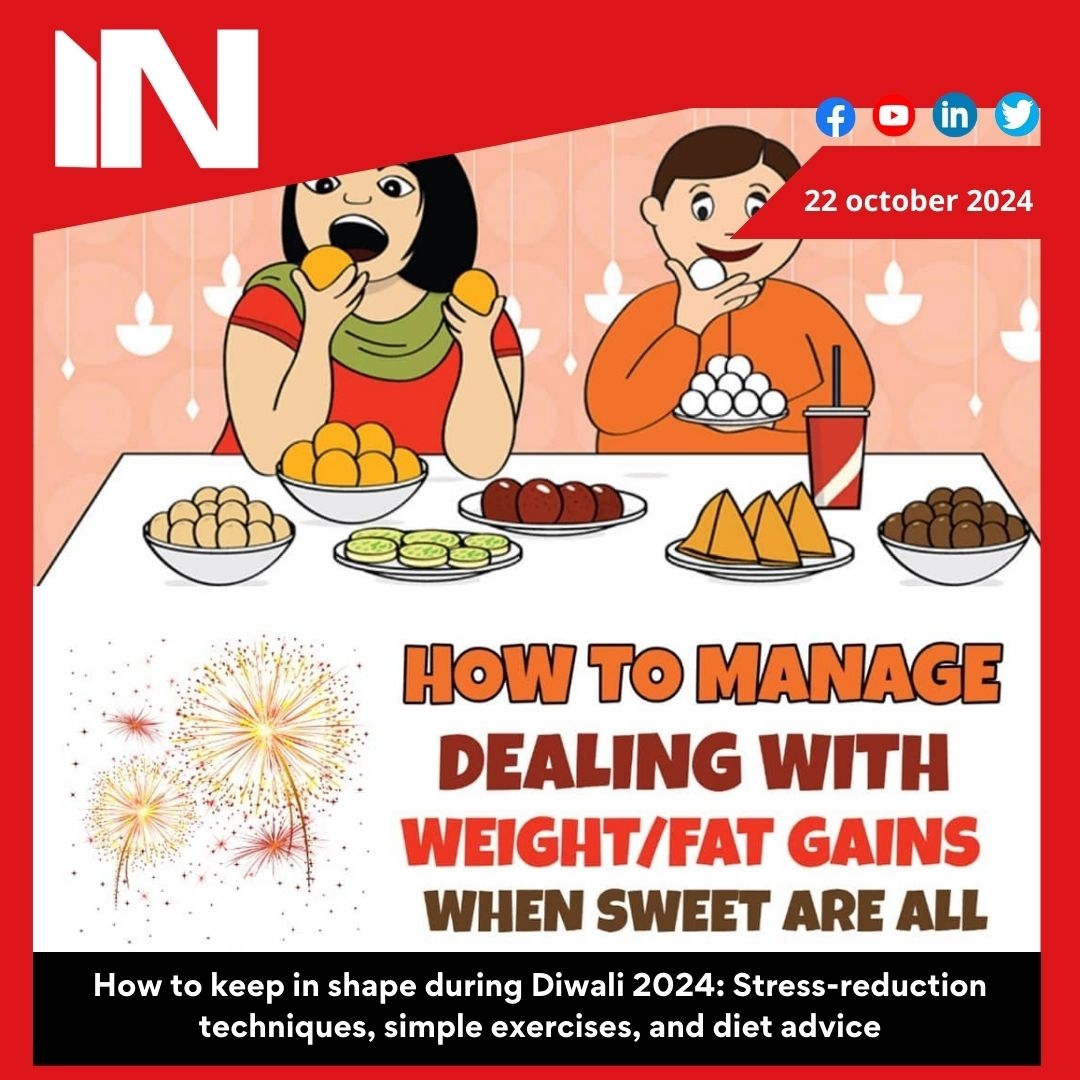Staying on track with your fitness goals during Diwali season can be challenging. These expert-recommended tips can help you stay active amid the festivities.
Even the most disciplined people can find it difficult to stick to their health routines during the festive season. But you can make things different this year. All that eating and socialising does not have to set you back on your fitness goals.
To help keep you on track, we’ve enlisted the aid of leading experts in health, fitness and nutrition for some much-needed advice. If you tend to get a little anxious around the festive season, don’t miss these simple tips and tricks to follow:
Nutrition and diet tips for Diwali festivities
She suggests opting for healthier alternatives without missing out on the joy of eating; but the key word there is balance. “Choose nutrient-dense snacks like roasted nuts, baked samosas, and fresh fruit platters over fried foods. Moderation is key — enjoy your sweets, but keep portion sizes in check,” Payal says.
Another one of your non-negotiables this festive season should be staying hydrated. Payal says, “Focus on staying hydrated by drinking plenty of water, herbal teas, and infused water to flush out toxins and curb overeating. Drink soup at home if you can, and then head out, or eat a small protein meal before heading out.”
Easy workouts to fit into your festive schedule
It’s not easy to fit in your workouts during the festive season, but even if exercise isn’t quite your top priority during the month of October, you can still move to stay active. Dr Soni says, “Maintaining physical activity is crucial during the festive season. Aim for short, high-intensity workouts when time is limited. Consider morning.
Payal recommends short, effective workouts, such as a 15-20-minute HIIT session, 20-30 burpees yoga stretches, or even a brisk walk. She says, “If you’re attending family gatherings or parties, use the opportunity to stay active.
dance during celebrations. Being the first one to initiate the moves on the dance floor can help digest the extra food and burn those calories. Or go for a walk with your loved ones. Even 10 minutes of stretching in the morning can improve your energy levels and help you feel your best.”
How to manage stress during the festive season
Diwali season can bring a lot of stress and strain on your mental health, ranging from mild annoyances to the types of anxieties that keep you up at night. And as you probably know, exercise is a great way to relieve all of that. Another truth: what you eat matters too.
Payal suggests adding mood-boosting and stress-relieving foods to your diet, like dark leafy greens, almonds, and foods rich in Omega-3s, such as chia seeds and flaxseeds. She says, “Soups are great for gut-brain health.”
Dr Soni adds, “Managing stress is essential for overall well-being during busy festive periods. Incorporate stress-reducing foods into your diet, such as foods rich in omega-3 fatty acids (like fatty fish, walnuts, and flaxseeds), complex carbohydrates (whole grains, vegetables), and magnesium-rich foods (leafy greens, legumes). Prioritise sleep and maintain a consistent sleep schedule as much as possible.”
Other coping mechanisms? “Practise mindfulness by incorporating short meditation or deep breathing exercises into your day, even if it’s just for five minutes. Prioritise quality sleep, and try to set aside a few moments of ‘me time’ to recharge. By making these small adjustments, you can enjoy the festivities guilt-free while maintaining a balance between health and celebration,” Payal says.
Group Media Publications
Entertainment News Platforms – anyflix.in
Construction Infrastructure and Mining News Platform – https://cimreviews.com/
General News Platform – https://ihtlive.com/


 Mahakumbh2 months ago
Mahakumbh2 months ago
 American Dream2 months ago
American Dream2 months ago.jpg)
.jpg) Bollywood2 months ago
Bollywood2 months ago
 Sunny Leone2 months ago
Sunny Leone2 months ago
 SSC Exam Calendar 20252 months ago
SSC Exam Calendar 20252 months ago
 Ajith Kumar2 months ago
Ajith Kumar2 months ago
 Pahalgam Attack2 months ago
Pahalgam Attack2 months ago%20(2).jpg)
%20(2).jpg) Celebrity Lifestyle3 weeks ago
Celebrity Lifestyle3 weeks ago.png)





.jpg)
.jpg)
.jpg)
.jpg)
.jpg)

.jpg)




%20(1).jpg)
.jpg)







